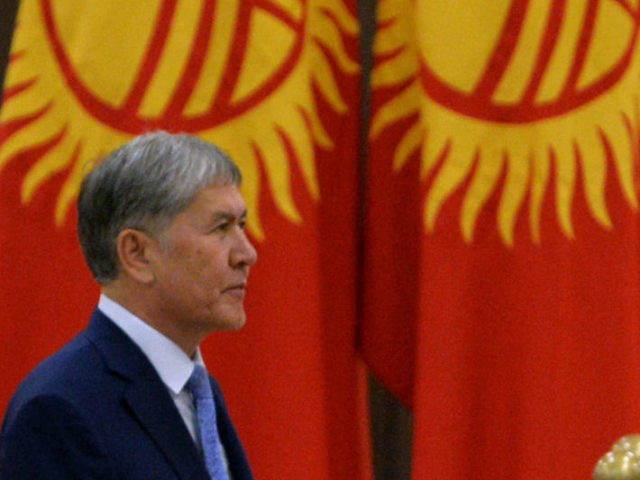People who wear Islamic clothing such as a burqa are more likely to become radicalised and plot terror attacks, the President of Kyrgyzstan, Almazbek Atambayev has said. His remarks, which have provoked widespread criticism, were offered as part of a national debate on Kyrgyzstan’s cultural identity.
His comments, made at a press conference, follow several weeks of controversy over state-sponsored hoardings going up which urged Kyrgyz women not to adopt clothing such as the burqa, niqab or hijab, the BBC has reported.
The President has previously made it clear that he has no problem with Muslim traditions, but opposes the ‘Arabization’ of Kyrgyzstan, the population of which is about 80 percent Muslim.
The hoardings show contrasting images: to the left a group of women dressed in traditional Kyrgyz attire, to the right a group of women in niqabs and black burqas, covering all but their eyes. Under the images, white text in a red arrow pointing towards the right reads: “Poor people! Where are we heading to?”
Responding to criticism of the advert, President Atambayev said: “When we erected banners some smart people appeared and started pointing at miniskirts. Our women have been wearing miniskirts since 1950s, and they never thought about wearing an explosive belt.
“You can wear even tarpaulin boots on your head, but do not organise bombings. This is not religion. Let them wear even miniskirts but there must not be any blasts.”
He asserted that the wearing of Islamic garb is not only out of step with the Kyrgyz national culture, but also has the potential to radicalise the wearer.
“Terrorists are insane people,” he said. “Clothes also can change one’s thoughts sometimes.
“When we were searching for prisoners who had escaped a detention centre, Melis Turganbayev [the former interior minister] came to me and said that they had been eavesdropping on telephone conversations of wives and mistresses of criminals. Their wives and mistresses wore sacks on their heads and they wanted to organise bombings.”
Addressing to those who adopt Islamic veils and values, he continued: “If you do not like Kyrgyzstan you can leave our country and go wherever you want. We can pay your travel expenses, even to Syria.”
A state commission has ruled that the hoardings do not breach advertising laws, but the Spiritual Board of Muslims of Kyrgyzstan, a state-run organisation, has slammed the ads as “provocative,” claiming that they undermine the unity of the Kyrgyz people.
Some citizens have also shared images on social media critically comparing western clothes to hijabs and bemoaning the westernisation of Kyrgyz culture. But President Atambayev has long made it clear that he views the wearing of veils not as a sign of adherence to Islam but as evidence of Arab influence on the country.
In 2014, speaking at a session of Kyrgyzstan’s Security Council, the President made it clear that he has no problem with conservative clothing, nor with Muslim traditions, but with the “Arabisation of society [and the] deprivation of the Kyrgyz nation of its language and traditions”.
Burqas, niqabs and other veils are Saudi Arabian in origin; their use has spread through the Muslim world along with the strict Wahhabi interpretation of Islam as promoted by groups including Islamic State.

COMMENTS
Please let us know if you're having issues with commenting.